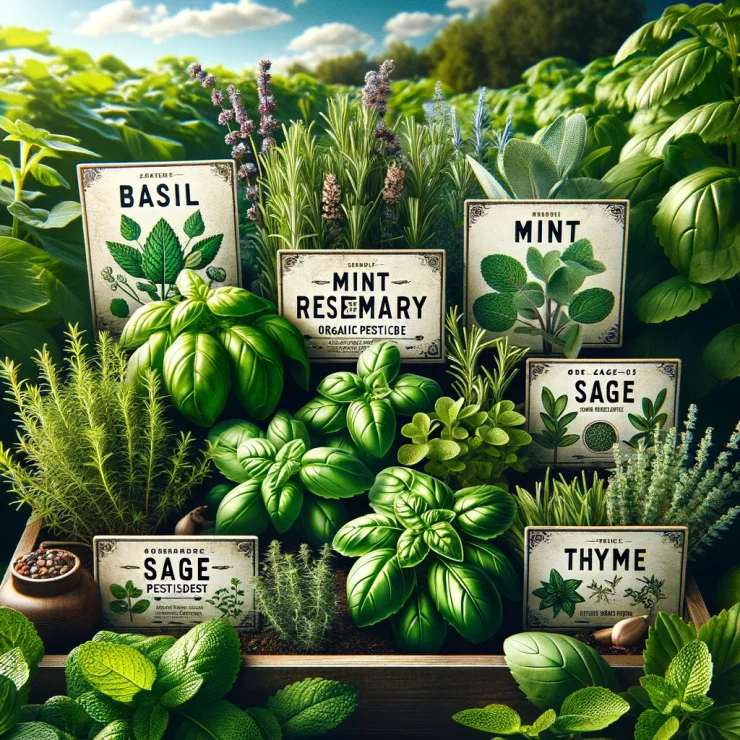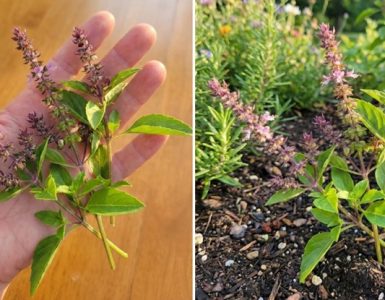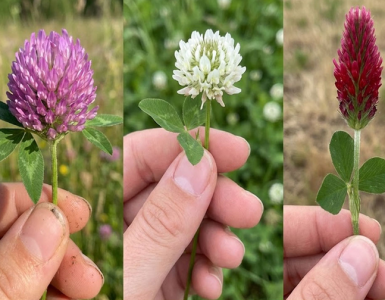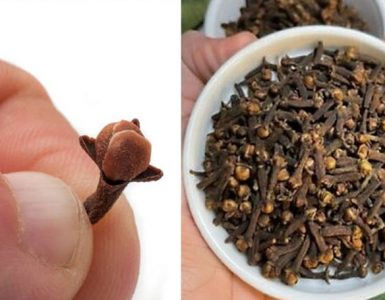With the increasing awareness of the harmful effects of chemical pesticides, many farmers and gardeners are turning to organic alternatives to protect their crops. Herbs offer a natural and effective solution for pest control, promoting a healthier environment and safer produce. Here are seven herbs that can be used as organic pesticides on your crops.
- Neem (Azadirachta indica)
Neem is renowned for its powerful insecticidal properties. The active compound, azadirachtin, disrupts the growth and reproduction of many pests, including aphids, whiteflies, and caterpillars. To make a neem pesticide, steep crushed neem seeds in water overnight, strain the mixture, and spray it on your plants. Neem oil is also available and can be diluted and sprayed directly onto crops. - Garlic (Allium sativum)
Garlic is a versatile herb that repels a wide range of pests, such as aphids, beetles, and caterpillars. Its strong odor is offensive to many insects. To create a garlic spray, blend a few cloves of garlic with water, strain the mixture, and add a small amount of dish soap to help it adhere to plant surfaces. This spray can be applied to affected plants weekly. - Basil (Ocimum basilicum)
Basil not only enhances the flavor of your dishes but also repels mosquitoes, flies, and aphids. Planting basil around your garden can help keep these pests at bay. Additionally, a basil spray can be made by boiling basil leaves in water, straining the solution, and spraying it on your plants. - Thyme (Thymus vulgaris)
Thyme is an excellent herb for controlling whiteflies, cabbage loopers, and corn earworms. Its essential oils are toxic to many insects. You can create a thyme spray by steeping fresh thyme in boiling water, allowing it to cool, and then straining and spraying it on your crops. - Mint (Mentha spp.)
Mint is a robust herb that deters ants, aphids, and flea beetles. Planting mint around your garden borders can help prevent pest invasions. For a mint spray, steep fresh mint leaves in hot water, let it cool, strain, and apply it to your plants. - Rosemary (Rosmarinus officinalis)
Rosemary is effective against a variety of pests, including cabbage moths, carrot flies, and slugs. The strong scent of rosemary confuses and repels these insects. To make a rosemary spray, boil rosemary leaves in water, strain the liquid, and spray it on your plants. - Lavender (Lavandula angustifolia)
Lavender is well-known for its pleasant aroma, which is highly effective in repelling moths, fleas, and flies. Planting lavender around your garden can help deter these pests. You can also create a lavender spray by steeping lavender flowers in boiling water, allowing it to cool, straining, and applying it to your crops.
How to Use Herb-based Pesticides
Most herb-based pesticides are prepared by steeping the herb in water to extract its active compounds. Ensure the water is clean and free from contaminants.
Use a fine spray bottle to apply the solution to your plants. Ensure thorough coverage on both sides of the leaves, stems, and flowers.
Reapply the herbal pesticide every 7-10 days or after rainfall, as rain can wash away the protective layer.
Before widespread use, test the spray on a small area of your plant to ensure it does not cause any damage.
By incorporating these herbs into your pest management routine, you can create a safer, healthier environment for your crops and contribute to sustainable agricultural practices. Happy gardening!






Add comment